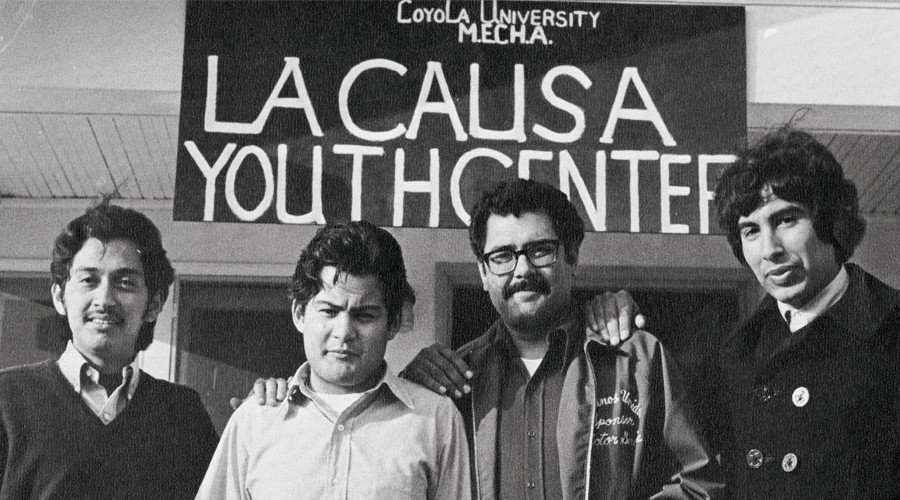
“The sense of belonging,” in the words of Emelyn Dela Peña, vice president for Diversity, Equity, and Inclusion, “is at the core of the effort to create, curate, and produce Loyola Marymount University’s Inclusive History and Images Project.” To build on that core requires the efforts of many people with a range of skills and consistent commitments.
“IHIP will foreground those who have been left in the historical gaps,” said Bryant Keith Alexander, who moderated a March 28, 2022, IHIP forum of 52 participants, including students, faculty members, staff members, and administrators. Alexander, dean of LMU College of Communication and Fine Arts, interim dean of LMU School of Film and Television and co-chair of the IHIP steering committee, led the call for contributors.
The Inclusive History and Images Project (IHIP), an important component of LMU’s ongoing university-wide anti-racism initiative, seeks to address important gaps in understanding our own institutional history by gathering stories and images from alumni and the greater LMU community to tell the full and inclusive LMU story.
Questions during the forum ranged from how the first set of photographs were chosen, how the background histories will be filled out, and what other steps will be included in the initial phase of the two-year project. “Our goal is to build wide awareness,” said Branden Grimmett, associate provost for Career and Professional Development. “We want to inspire trust in the process.” With that, in response to a question about the involvement of staff, including facilities and custodial workers, IHIP co-chairs stated that all diverse members of the LMU community with long histories are invited to participate in sharing their stories. Alexander noted: “Yes, this could include stories of strife and struggle, but also stories of the full dynamic experiences of being and becoming an LMU Lion — and what their work life and educational experience was like at LMU.”
“That process began with scouring hundreds of images from the archives,” said Neil Agrawal, digital projects librarian in the William H. Hannon Library, “to uncover a widest-possible representation of university life.” The process of collecting oral histories will include a course designed and taught by Margarita Ochoa, associate professor of history, that will have a two-fold purpose, she said: “to educate students in research skills that could lead to professional opportunities; and to enrich their educational experience and connection to LMU.” Joseph Bernardo, DEI associate in the Office of Diversity, Equity and Inclusion, will also be involved in teaching and training a range of students in the art of oral history research and practice.
Augmenting those efforts is perhaps the most important component: contacting alumni and getting their contributions and stories of life at LMU. During the hourlong Zoom forum alumna LaRita Shelby ’84 talked about her collection of photos from her performances at LMU and how thrilled she was to be able to participate. Mary Breden, retired director of Choral Activities, professor and former chair of the Department of Music, offered her extensive collection of photos from choral performances around the world.
In addition, Lisa Piumetti Farland, executive director of strategic alumni engagement, said that her team was beginning to reach out to alumni with an eye to giving context to many of the images that have been collected. She also said that she is looking for ways to broaden alumni engagement, including at events such as the annual Alumni BBQ.
The IHIP was initiated as a response to a demand by #BlackatLMU students over the summer of 2020 to broaden the representation of Black students on campus and in the historical record of the university. It has been bolstered by a two-year $40,000 grant from NetVue; the website has been expanded; and library archivists have located many photos showing LMU’s diverse history that are being digitized and made searchable. The current IHIP banner and digital campaign on campus was designed by MarComm as a part of the awareness phase that signals the activation of the project to further invoke curiosity and invite community engagement at all levels of the project as whole; a project that is just beginning. Learn more and participate in the Inclusive History and Images Project.



